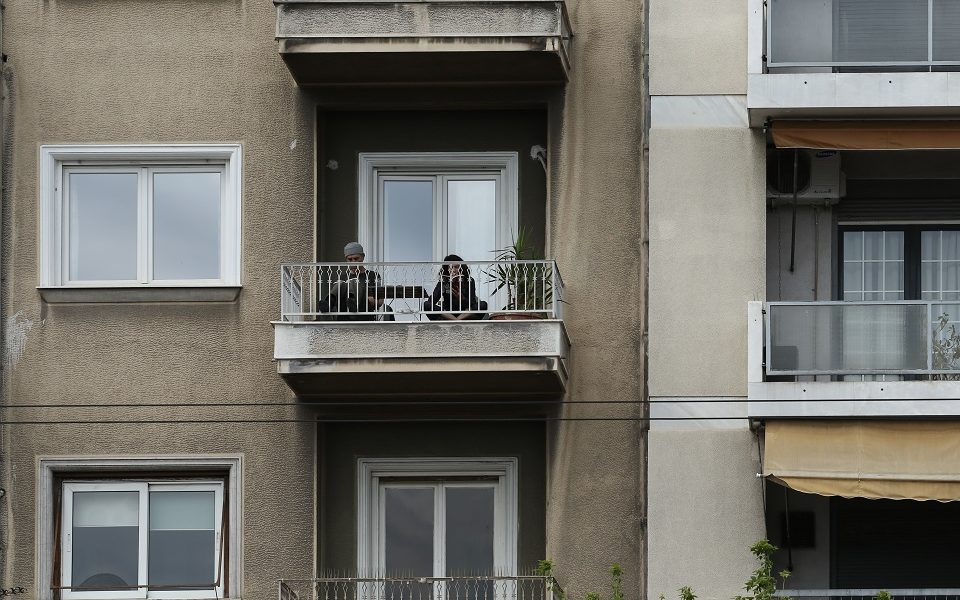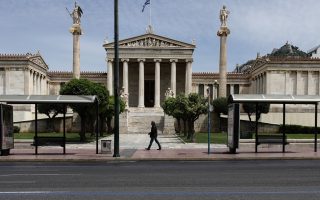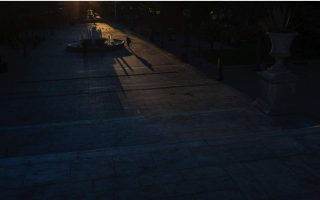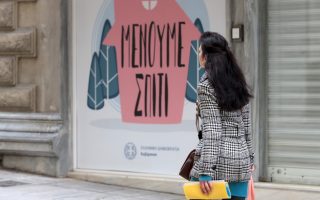Remembering Cavafy in lockdown

During this time of isolation I think of Cavafy. Not only because we, like the Alexandrian poet, can exclaim “around me they built walls great and high.” Nor just because “our efforts are those of the lost, like those of the Trojans,” in a world of deprivation in which “a window opening will console us.” I think of what has distilled inside me over the years since I read him last: the ironic, melancholy glance at his – and our – entrapment between memory and desire.
Aside from specific and well-known poems and images, Constantine Cavafy depicts a world in which nothing is certain or permanent, where joy and pleasure are brief, stolen moments that will be treasures tomorrow. Like a survivor himself, he describes colonies and empires, lives and religions the moment before they succumb to violence or the deserts of time.
We see not only great Anthony at the moment of defeat losing the Alexandria he loved, but also the unnamed young man whose beauty, Cavafy notes, is ground down in a workshop’s daily toil. Time and fortune are ceaseless, merciless for all – for the pompous official, the fanatic and the bigot, the mother of a sailor who waits for him in vain.
Memory is our home in a world out of reach. We are here, in the present, not there, whatever the memory. We have this in common with Cavafy’s people – with the poet himself. As the virus threatens us all – an invisible invader – we are all observers, castaways on the shores of an unknown sea that is our life. It is human to be dizzied by the speed and depth of change, to overstate the magnitude of disruption. This time, though, it is clear that we are not exaggerating, that much will change.
Never has every life, in every country, come to be shaken so much at the same time. The freeze comes when the weaknesses of the global economic system and politics were already evident, giving us a unique opportunity to evaluate reality and our mistakes. We are like the poet in the moment between silence and the word. Cavafy’s figures are blind to reality, believing in their own free will and custom, they rush into the traps of time and chance.
We find ourselves in such a trap today – each one of us, each country, the world. “We are at war,” we hear. “We need a new Marshall Plan.” Yet we are not Cavafy’s figures, one step from the end. We are here, alive. How will we reshape our world, our fate?
One choice is to stay in place, to hope that a cure will be found soon and we will pick up where our society and economy were suddenly cut off. This seems the most logical thing, the easiest path. It is natural that we would want to return to where we were a few weeks ago. But here we run the risk of – like Cavafy’s people – being blind to the wave about to break upon us.
We are children of the 21st century and not of late antiquity, from which the poet draws inspiration, nor of Alexandria 100 years ago. We ought to see that our societies and world are in great need of reform. It is clear that many businesses will not survive the crisis, that unemployment will be the next plague, that governments will have to spend a lot more money than they will be drawing from economies in recession. The need for radical solutions at all levels is unavoidable. Societies cannot remain based on extreme inequality, where the survival of many is not assured, where essential workers are poorly paid. When we speak of war and reconstruction, we need to talk also of righting wrongs that could lead to revolution or dictatorship.
Today we see the past, we can imagine the future. Cavafy draws on the past, creating a world that shows humanity’s lot, the vanity of pride, the danger of complacency – but also the consolation of delight “that has journeyed twenty-six years/to find home in this poem.” His biographer, Robert Liddell, describes the poet drawing on the past but also defining the once great city that gave him birth and, despite his cosmopolitan youth, held him till his death. “It is no affectation to say that only the great past of Alexandria made it tolerable to live there – and only Cavafy connected the great past with the contemporary world,” Liddell wrote.
We, motionless for a moment between the past and an uncertain future, must tie yesterday to today, must imagine the future that we want. If we have learned anything from this time of lockdown, if we remember anything of Cavafy, it is that desire drives memory and memory drives desire.





